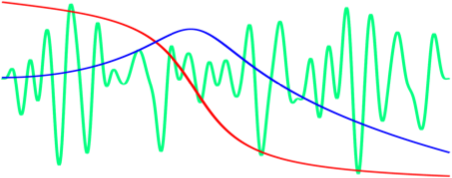Geoscientists without Jobs, Part 3
You’ve heard the adage, “It’s not what you know, but who you know.” Being a professional geoscientist for more than 20 years, I can say both are important, and discounting the latter is something one does at their own risk. The geoscience community is on the cutting edge of technology in many ways, but has not yet made substantial use of social media. Perhaps this is a reflection of our demographics, but there is no denying the majority of us only do professional networking IRL. (For those unfamiliar with web shorthand, that’s “in real life”.)
Geoscientists seeking jobs can glean a great deal of information from the Internet—and we’ll get to that in a later installment. For casualties of the downturn, real-world networking is far more valuable. An intelligence agent will tell you human intelligence is more important than chatter on the Internet. Perhaps more important than keeping tabs on the industry is the need for you to be marketing yourself, and nothing beats doing that in person. When the time comes for a manager to make a hiring decision, the best way for you to be top of mind is to have been in front of his or her face.
The hardest thing about networking when you’re unemployed is getting over the initial embarrassment of advertising your status. Let me be frank about this: it sucks, it’s hard, and yet it’s absolutely necessary to do. The good news is that it gets easier, and if you struggle with networking skills and suffer from anxiety when meeting new people (as I do), you may want to grow your networking comfort zone with some progressive steps.
I make it a point to go out to lunch at least one a month with different colleagues in small groups, anywhere from one to three people. These are people I’ve worked with at various times over my career, and I consider the primary function of these meetings to be social. Yes, I’m staying connected to the community, and I’m also learning about their companies and their challenges, but I treat these as primarily social occasions and an excuse to get out of the house. There’s no pressure to be “on” in these situations.
The secondary purpose of these interactions is to sharpen how I present myself to strangers. Talking with a colleague from five years ago forces me to talk about what I’ve done since we last worked together, and it gives me raw material for my “elevator pitch”. I’ve found that I’m not always the best judge of what makes my knowledge and skills unique, and insights from my friends have been both surprising and useful. This is a form of peer review, something we appreciate in the technical aspects of our careers and often under-utilize in other arenas.
After a few of these smaller gatherings, I felt it was time to go up to something bigger, like a GSH (Geophysical Society of Houston) luncheon. As someone who is incredibly socially awkward, these events are terrifying, as I do not handle large gatherings of people well under the best of circumstances. Interestingly, I found these events to be both terrifying and supportive. It’s a bit like attending a survivors’ support group; many of these people have been there before. After attending a few GSH events and working on my introductions with colleagues who were not as familiar to me, my confidence grew a bit, and I decided to take another step outside my comfort zone.
A few months back, the Houston Geological Society held a workshop on geoscience consulting, and I had never attended an HGS (not to be confused with GSH) event. There were over 100 people at this event, and only two I recognized. I was now forced to meet new people! It turned out to be one of the most productive days I’ve spent in a long time. I felt a bit like an anthropologist among the natives, as I was one of the few geophysicists in the room. Being something of a novelty, it sparked many interesting conversations, including a few which led to some consulting opportunities about which I would have not otherwise known.
All learning takes place by understanding the boundaries of your comfort zones, and then working to slowly expand them to encompass new knowledge and experiences. Learning to network is no different. For many of us, this is the most difficult aspect of maintaining our careers, but if we take careful steps outside our comfort zones (taking care not to leap off cliffs), we can develop these skills just as we do our technical knowledge.
